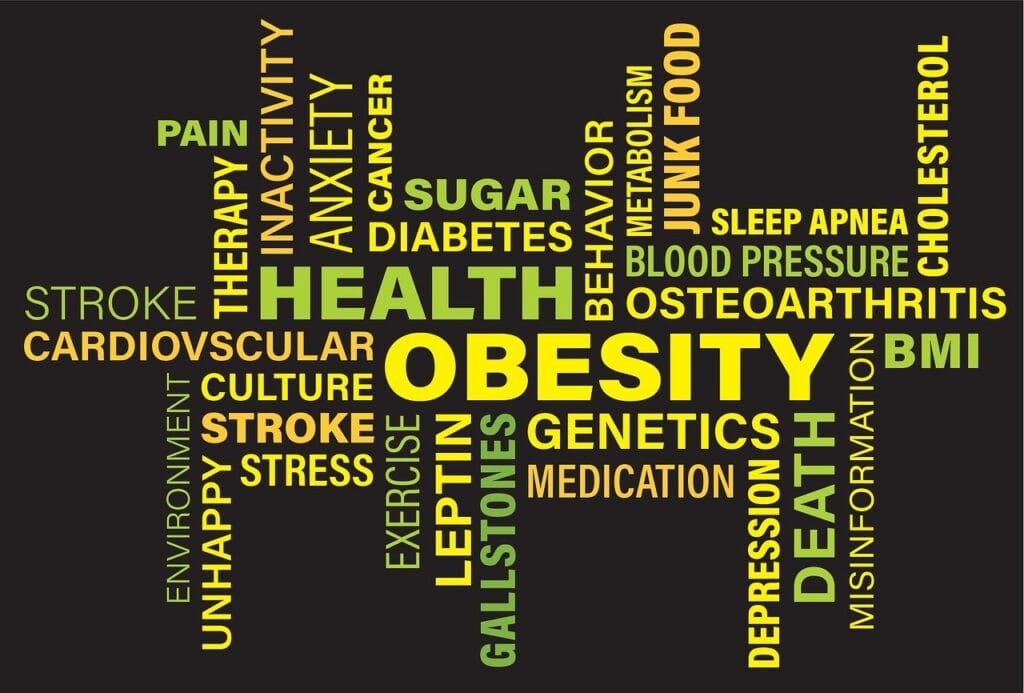We frequently hear about the significance of maintaining a specific weight while discussing health. For many, the main metric used to determine if a person is underweight, normal weight, overweight, or obese is their body mass index, or BMI. Nevertheless, this oversimplified metric isn’t always accurate. The idea of being “healthy but fat,” which challenges the over-reliance on BMI as a sole measure of health, has come to light in recent conversations. This article will discuss the limitations of BMI, examine the idea of metabolic health, and stress the significance of food, exercise, and mental health.
Table of Contents
The BMI’s Drawbacks
A popular and practical method for calculating body fat based on height and weight is BMI. Although it offers a rapid and simple method of classifying people, it has serious drawbacks. BMI can occasionally misclassify people since it does not take into consideration factors like muscle mass, bone density, or fat distribution. For instance, because of their increased muscle mass, bodybuilders and sportsmen may have a high BMI, although they are frequently in very good health. On the other hand, those with a normal BMI but a high body fat percentage and little muscular mass may have poor metabolic health.

Other metrics like body fat percentage, waist-to-hip ratio, and general fitness levels must be taken into account in order to obtain a more complete picture of a person’s health. The distribution of weight and its potential health effects can be better understood with the help of these measurements.
Comprehending Metabolic Health
The ability of the body to control important functions including blood pressure, cholesterol, blood sugar regulation, and inflammation is referred to as metabolic health. A person with a healthy metabolism can digest and use nutrients effectively, keep their energy levels steady, and lower their chance of developing chronic illnesses like diabetes and heart disease.
It’s interesting to note that weight is not the only factor influencing metabolic health. A balanced diet, frequent exercise, and abstaining from bad habits like smoking and binge drinking can all help persons with higher BMIs maintain excellent metabolic health, according to studies. On the other hand, if they eat poorly and lead sedentary lives, people with normal BMIs can nonetheless be metabolically unwell.
The Function of Exercise
An essential element of general health and wellbeing is physical activity. Frequent exercise has many advantages, such as greater metabolic function, stronger bones and muscles, better mental health, and improved cardiovascular health. A well-rounded fitness regimen includes cardiovascular workouts (cycling, swimming, jogging), strength training (lifting weights, resistance training), and flexibility exercises (yoga, stretching).

When it comes to health objectives, fitness should take precedence over weight. Make an effort to include regular physical activity in your daily routine rather than concentrating only on the number on the scale. Your cardiovascular fitness, muscle mass, and metabolism can all be enhanced by this, which will improve your general health.
The Value of a Well-Balanced Diet
Healthy eating is based on eating a balanced diet. Eating a range of meals high in nutrients helps lower the risk of chronic diseases and promote general well-being. Your diet should contain a lot of fruits, vegetables, lean meats, whole grains, and healthy fats. Essential vitamins, minerals, and antioxidants included in these foods assist a number of body processes and advance well-being.

However, it’s crucial to minimize intake of processed meals, sugary beverages, and too much sodium. A higher risk of chronic diseases, poor metabolic health, and weight gain can all result from these things. You can promote your general health and well-being by choosing whole, unprocessed meals with awareness.
Body Image and Mental Health
Social pressures to attain a particular body type and weight stigma can have a serious effect on mental health. Stress, anxiety, and depression can result from problems with self-esteem and a negative body image. It’s critical to understand that weight and appearance are not the only factors that define health. Better mental health results can result from prioritizing general well-being and a good body image.

In order to promote a holistic approach to health, it is necessary to recognize the significance of mental and emotional wellness. Stress management, mindfulness, and meditation are a few techniques that can help raise the general quality of life and mental health.
Stress’s Effect on Health
Long-term stress can be harmful to one’s physical and emotional well-being. Long-term stress can cause problems like mental health illnesses, reduced immune systems, and elevated blood pressure. Using appropriate coping strategies to manage stress is crucial. Stress reduction and general well-being can be achieved by methods including deep breathing exercises, frequent exercise, spending time in nature, and taking up hobbies.
The Function of Sleep in Health
A good night’s sleep is essential to general wellness. Emotional stability, cognitive function, and metabolic health can all be adversely affected by little sleep. To aid in your body’s healing processes, try to get between seven and nine hours of sleep per night. Reducing screen time before bed, establishing a consistent sleep schedule, and creating a relaxing bedtime environment can all help to enhance the quality of your sleep.

Health and Social Relationships
Keeping up solid social ties is crucial for mental and emotional well-being. Good relationships can boost a person’s sense of purpose and belonging, lower stress levels, and offer support. Social ties can be strengthened and general well-being improved by taking part in community events, interacting with friends and family, and engaging in social activities.
BMI Health Assessment Instrument
To assess your BMI and learn about its implications, use the calculator below. To begin, just input your height and weight.
BMI Calculator
Developing a Customized Health Strategy
Making a customized health plan that takes into account your particular needs and objectives is crucial to achieving maximum health. To create a thorough strategy that takes into account every facet of your health, speak with medical experts, including nutritionists, personal trainers, and mental health counselors. Tracking progress and modifying your approach as needed might be facilitated by routine examinations and monitoring.
Conclusion
BMI is not a reliable indicator of health since it is a complicated and multidimensional notion. Although BMI offers a practical means of classifying weight, it has serious drawbacks and ignores crucial elements including muscle mass, fat distribution, and metabolic health. We may better promote overall health and well-being by adopting a holistic approach that places a higher priority on mental health, stress management, exercise, balanced eating, good sleep, and strong social ties.
Keep in mind that it's about how you feel, act, and succeed in your day-to-day life, not just the numbers on the scale. Prioritize upholding a healthy lifestyle that consists of consistent exercise, well-balanced food, and constructive mental health techniques. Regardless of your BMI, you can attain and preserve optimal health by doing this.














